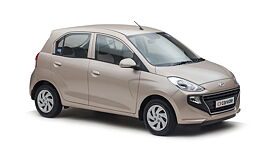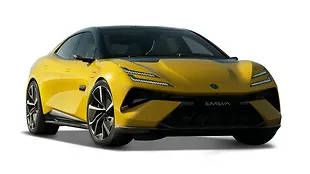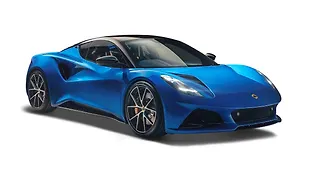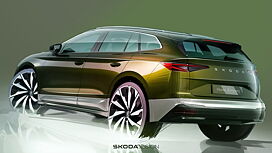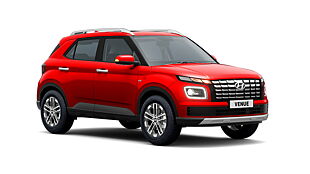Introduction

The name Santro automatically reminds me of the 'sunshine' car and its advertisements with Shahrukh Khan. Over 20 years ago, Hyundai, a Korean carmaker and very new to the Indian market, brought in a car that went on to set new trends. It was the Santro that promoted the ‘tall-boy design’ and many new features for an entry-level car. Fog lamps, power windows and tech like fuel-injection with power steering was revolutionary for our market. And then, the Santro was updated a few times before it was finally discontinued in 2014. However, it's now back with drastic changes made necessary by changing times.

The new Santro is now bigger, modern and more feature-rich than its predecessor. It holds a promise of being way better than before and up-to-date against the competition. It’s slotted between the Eon and the Grand i10 in Hyundai's line-up and is offered in nine variants, including CNG, petrol manual and automatic trims. We've sampled the top-end Asta petrol manual and Sportz AMT variant here in this road test, to find out if the car still has the potential to attract a first-time car buyer.

Design and style

For starters, it needs to be said that the 2018 Santro is not based on the i10. In fact, this car is underpinned by the chassis of a heavily modified version of the Grand i10. On the design front, the Santro retains the signature tall-boy design even if it isn't as tall as the old Santro. But the styling has evolved to a modish one with a new front end, swept back headlights and a cascading grille that merges into the fog lamp bezels. The bumper is nicely sculpted, but the black cladding doesn't really help in making a very fashionable statement. On the sides, the absence of alloys again make the car look ordinary, but the creases around the wheel arches add some variation. Thankfully, the kink on the beltline doesn't look odd, but we would have appreciated if the rear design with simple tail lamps had been made more interesting.

Interior

It’s a tastefully designed cabin that greets you upon entry into the Santro. The entire layout and the dual tone of black and beige looks pleasant, especially with a touch of champagne gold for inserts. Do note that the Diana green Santro gets an exclusive all-black interior with green accents that looks funky too. The rubberised buttons below the music system, smooth knobs and plastic buttons also feel nice to hold/touch. Furthermore, the part-analog and part-digital instrument cluster, high placement of a large touch screen, Mercedes-styled air vents, etc., all of these make the Santro an interesting car to be in.

But I still wonder why Hyundai missed out on a chrome logo on the steering wheel and a lock button for the doors. Also, the air-con controls still feel basic. Besides, owners are going to take some time to get used to the power window buttons placed on the centre console which, again, aren’t backlit. Even so, given the fit and finish, good quality of materials and the way all things are in place, it surely feels like it comes from a segment higher rather than appearing to be any ordinary entry-level hatchback.

Needless to say, the tall-boy design helps in easy ingress and egress from the car. However, the absence of seat height and steering adjust might be a deal-breaker for prospective buyers who are very tall. Average-sized adults might like the high seat position with great frontal visibility, however, tall guys won’t be able to find the perfect driving position especially with the steering set low. Nonetheless, the large rear windshield has good rear visibility and the kink on the rear window has helped clear a good view of the road for rear occupants.

The new Santro is also wider than the older model, so shoulder room has been well taken care of, and this is evident now with three individuals easily fitting onto the flat bench in the second row. The cabin is spacious with good legroom and headroom, while the slim seats have helped in liberating more space. Mind you though, despite being slim, these are well padded and contoured to provide adequate back and thigh support, thus also adding to comfort. Interestingly, these are part faux leather and fabric which serve both purposes – practicality and feel-good factor.

The Santro also takes care of all your storage needs efficiently with a well thought out stowage slot on the dashboard for phones, a large glove-box, big bottle holders etc. The boot space at 235litres remains average, but it can be expanded thanks to the rear seat falling almost flat. However, loading luggage becomes tedious due to the high loading lip and an intrusive parcel tray without strings attached to the boot-lid.

Safety and equipment

Hyundai has used a fair amount of high strength steel in its construction. This makes the car ready for the crash norms that kick in this year. It already meets the pedestrian safety norms and every trim is equipped with ABS with EBD and a driver-side airbag as standard. In fact, the top-end Asta trim also gets an additional passenger side airbag. Other safety features like an immobiliser and child safety door locks are standard, but only the top-end variants benefit from central locking, rear defogger, keyless entry, speed sensing and impact sensing auto-door lock/unlock.

Then when it comes to the comfort and convenience, the Santro boasts of some first-in-segment features like rear air conditioning vents and rear parking camera (only on Asta) and a big seven-inch touch screen multi-media system with voice recognition. This unit also supports Android Auto, Apple CarPlay and Mirrorlink. Also, the presence of electrically adjustable ORVMs with turn-indicators, steering mounted audio and telephony controls, a comprehensive trip computer, boot-opening with key, USB and 12V ports means the Santro scores quite well. What it could do with, however, is parking sensors on the lower trims at least, if not the same reversing camera from the Asta. Also, a nice set of alloy wheels for which buyers will have to resort to the after-market.

Engine, Performance and Braking

Unlike the competition (read as Tiago, WagonR and Celerio) powered by a three-cylinder engine, the Santro uses a 1.1-litre four-cylinder mill producing 69bhp and 99Nm of torque. Hyundai intended to provide better performance, drivability and low vibrations, which we must say they have majorly succeeded at. This 1,086cc engine is silent at idling and builds revs quickly. Our only gripe here is about how the engine makes itself audible at high revs even though it is so refined. But then, one wouldn't be revving more than 3,000rpm as there's enough torque on tap to march along with the traffic or sprint ahead of vehicles. Matching the punchy mid-range is a good low end grunt which allows the gearbox to lug in the same gear without the need for it to constantly downshift.

We've already spoken about the five-speed manual version in detail in our first drive. We liked its light clutch, smooth gear shifts and short gear throws. Likewise, the AMT version here impressed us even more by making the drive an easier affair. This Smart Auto AMT has debuted with the Santro and is developed in-house by Hyundai. Unlike traditional AMTs, this one uses an electric actuator that employs an electric motor for gear-shifting and the clutch operation. There's a separate control unit to aid in smoother shifting of gears, a faster actuator response and provides better durability as compared to a hydraulic actuator. As soon as you slot it in 'D' and let go of the brake pedal, the creep mode helps in slowly moving the car forward, albeit with a slight delay. A very handy tool while in bumper-to-bumper traffic, especially for new car drivers. To negate the AMT lag, engineers have smoothened out the gear shifting to an extent that although it may not feel very quick to shift, the head-nod affect is almost negligible. And I liked it.

After hooking up our V-Box to test it, we realised this Santro is more-or-less at par with the segment rivals as it reached 100kmph in 16.87 seconds. Plus, the light 910 kg helps it attain the 20-80kmph in kickdown in 10.33 seconds, and 12.46 seconds for the 40-100kmph run.

When it comes to braking, the Santro retains its composure and comes to a halt from 100kmph in 2.95 seconds/42.39 metres. Yes, there's good stopping power from this setup along with good grip from the Hankook rubber that’s shod on the 14-inch steel rims. Still, a little more initial feedback from the brakes would have been welcomed.

Ride and Handling

The Santro gets a McPherson strut in the front and a coupled torsion beam axle at the rear. This suspension is nicely set up to soak up small bumps, potholes and ruts with ease. This is the case especially at slow speeds where the ride quality is absorbent and pliant and keeps all the occupants comfortable. However, one just has to be a little careful with bigger bumps and sharp edge potholes, especially at higher speeds as the jolts are not only audible in the cabin, but they might also unsettle the car. Having said that, the high speed ride isn't exactly flat, as even small undulations make the ride bouncy (especially at the rear). So expect passengers to complain about the springy ride out on the highway.

Thankfully, the body roll is still well controlled. It doesn't make you feel nervous while making quick directional changes. Also, the steering weighs up nicely, despite there being some artificial response. And what’s more, the steering is light enough to make driving easier in the city or whilst parking. In a nutshell, the Santro's handling is predictable and won't throw any unpleasant surprises, thus making it a very safe car to drive.

Price and Fuel Economy
The base-variant D-lite is priced at Rs 4.5 lakhs on-road in Mumbai. Meanwhile, both these top-end Asta and Sportz AMT variants are similarly priced, retailing at around Rs 6.5 lakhs on-road in Mumbai. This pricing might not look affordable for an entry-level car, but it feels just about convincing for what the Santro packs in as a package.

As for the fuel economy under our testing cycle, the Santro AMT delivered 13.54kmpl in the city and 19.31kmpl on the highway, which is slightly less than the ARAI-tested 20.3kmpl, but still acceptable given the ease of driving it provides. In all, the Santro's lightweight surely has a big role to play for these economic runs.
Verdict

The 2018 Santro, then, is indeed a massive jump from its previous generation. Right from design to features, engine performance and dynamics, all come together to make it a better car that should live up to the Santro’s legacy. Sure, its quirky styling might be a hit or miss and its pricing isn’t as competitive as other low-priced entry-level cars. But then, it offers a spacious cabin, good quality interior, some segment-first features, is easy-to-drive and economical to use within the city. With so many plus points, you may be sure that this car is likely to lure in a first-car buyer.

Pictures by Kapil Angane
Specifications
| CAR NAME | Hyundai Santro | Hyundai Santro |
| Variant | Sportz Petrol AMT | Asta Petrol Manual |
Test Data
| CAR NAME | Hyundai Santro | Hyundai Santro |
| Variant | Sportz Petrol AMT | Asta Petrol manual |
| PERFORMANCE & BRAKING | ||
| 0-20kmph | 1.76s | 1.18s |
| 0-40kmph | 3.64s | 3.29s |
| 0-60kmph | 7.36s | 6.47s |
| 0-80kmph | 11.64s | 10.24s |
| 0-100kmph | 16.87s | 15.43s |
| 0-120kmph | 25.08s | 22.80s |
| 20-80kmph in kickdown/3rd gear | 10.33s | 14.84s |
| 40-100kmph in kickdown/4th gear | 12.46s | 21.78s |
| 80-0kmph | 25.86m | 25.86m |
| FUEL ECONOMY | ||
| City | 13.54kmpl | 12.7kmpl |
| Highway | 19.31kmpl | 16.8kmpl |
| Tank size | 35 litres | 35 litres |
| Range | 490.0km | 435.0km |
| INTERIOR MEASUREMENTS | ||
| Front | ||
| Legroom(Max/min) | 820/650mm | 820/650mm |
| Headroom | 990mm | 990mm |
| Shoulder room | 1270mm | 1270mm |
| Backrest height | 600mm | 600mm |
| Rear | ||
| Legroom(Max/min) | 820/630mm | 820/630mm |
| Ideal legroom | 720mm | 720mm |
| Headroom | 940mm | 940mm |
| Shoulder room | 1240mm | 1240mm |
| Seat base length | 490mm | 490mm |
| Backrest height | 610mm | 610mm |
| Boot | 250 litres | 250 litres |
| Length/width/height | 580/1050/530mm | 580/1050/530mm |
| Loading lip height | 760mm | 760mm |

